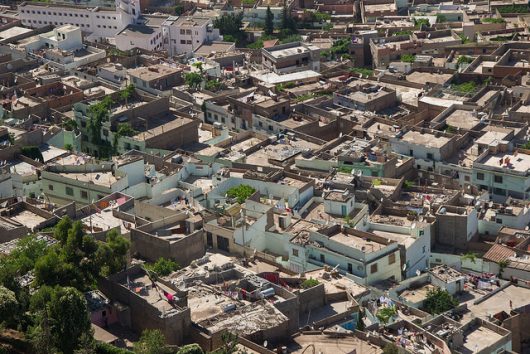Five Important Development Projects in Algeria

Since gaining independence from France in 1962, Algeria has been arduously attempting to gain some headway on the international stage. Following a 20-year engagement with the socialist model, Algeria shifted its approach to development in the early 80s, and has been actively engaged in the precepts of globalization ever since.
Yet, the road towards development has yet to reach its end. The following are five development projects in Algeria that aim to settle the country in a place of prosperity and hope, once and for all.
- International Fund for Agricultural Development (IFAD)
IFAD has spent $65.6 million on a series of agricultural development projects in Algeria. First, they aim to strengthen the capacity of rural communities to operate independently. Second, they work to improve irrigation infrastructure, soil and water conservation, management of silo-pastoral ecosystems, livestock husbandry and rural tracks. Lastly, they continue to push for the progression of women’s place in society through the development of rural microenterprises. They have focused assistance on three communities whose economic capabilities are all but limited to agriculture. Currently, their five programs operate in the mountainous areas in the north of the country, the Saharan areas in the south and the coast, where poor fishing communities make up the majority of the population. - Arab Reform Initiative – International Development Research Center of Canada (IDRC)
After the uprisings in 2011, commonly referred to as the Arab Spring, the fervor slowed as national governments cramped down on protestors. The aim of IDRC funding is to ensure that ideals of democracy and progress are maintained and cultivated in the youth of Algeria. The project, lasting for two years, is managed by the Arab Reform Initiative, and aims to develop the youth as political actors and active citizens engaged in their country’s political, social, economic and cultural spheres. - The Trans-Saharan Highway (La Route Transsaharienne)
The development of the trans-Saharan highway has been years in the making. The route from Algiers, running through Niger and down through Nigeria, is about 5,000 km. The route itself has been used for trade since the eighth century, but, until recently, has been a road of sand. Paving the road is meant to increase the trade profit between the three nations it runs through. The Algerian government has opted to pay for its portion of the construction from its national budget, a reflection of a trend in their more recent national policy. - World Food Program (WFP) – Algeria’s Sahrawi refugees
The WFP has operated in Algeria since the late 80s. They work to provide basic food and nutrition needs to the populations of Sahrawi refugees on the country’s Western border. Algeria has hosted Sahrawi refugees from Western Sahara since 1975. The program’s main focus is decreasing a debilitating rate of iron deficiency found in Sahrawi women and children. - Transparency International
Transparency International is an organization whose aim is to evaluate the transparency of governments. In Algeria, it has determined that transparency is sorely lacking. The country has been scored 34 out of 100, and comes in 108 out of 176 countries. The organization’s tactics are simple. By shining a light on issues of corruption within the government and private sector, Transparency International is able to create accountability in situations where it is sometimes nonexistent. In this way, ideals of transparency have begun to permeate governance, as seen in the 2006 creation of the Central Office for the Suppression of Corruption, an agency tasked with the investigation and prosecution of all forms of bribery in the country.
These five development projects in Algeria are just a small indication of the state of Algerian society today. Ultimately, what these projects exemplify is the potential for further improvement in the North African nation.
– Katarina Schrag
Photo: Flickr
